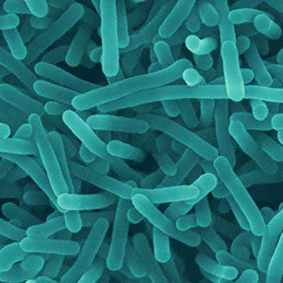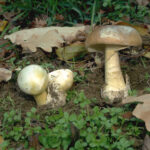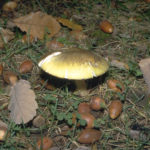What is listeria?
 Disease caused by Listeria infection is a comparatively rare form of foodborne illness, but it can be a very serious disease in:
Disease caused by Listeria infection is a comparatively rare form of foodborne illness, but it can be a very serious disease in:
- pregnant women and their unborn babies
- people who have diabetes, cancer or suppressed immune systems due to other chronic diseases such as leukaemia, HIV, diabetes, liver or kidney disease, cirrhosis or ulcerative colitis
- older people (generally considered to be over 65 to 70 years) depending on their state of health and especially if they have an underlying health issue like those above
- people taking a medicine that suppresses their immune system e.g. prednisone or cortisone
- organ transplant patients.
All these at risk groups for Listeria infection are advised to avoid the foods listed below. Listeria has also caused occasional outbreaks of mild gastroenteritis in healthy people.
If you’re not sure whether your condition or medication puts you in one of these at risk groups check with your GP on your next visit and follow this advice if you are. You can test your knowledge about Listeria by taking our quiz.
The symptoms of Listeria infection are mild and often are described as ‘flu-like’, although vomiting and diarrhoea can occur. If a pregnant woman is infected, it can lead to miscarriage, premature birth or the still birth of her baby even if she doesn’t show the symptoms. The time from infection to symptoms can be anywhere between 3 days and 3 months.
How to avoid Listeria infection
Listeria are bacteria that are widely found in the environment so most raw foods are likely to be contaminated. You don’t have to miss put on your favourite foods as Listeria is easily killed by cooking so, for example, you can easily add ham to a pizza, feta to a quiche or smoked salmon to fully cooked scrambled eggs. Just remember that cooked foods can easily become re-contaminated through poor food handling after cooking. For foods that can’t be cooked you can make other choices such as using fresh whole lettuce for salads rather than bagged lettuce.
If you are at risk of Listeria infection you need to avoid, or where possible cook to at least 75C, the following foods:
- Unpackaged ready to eat meats from delicatessen counters and sandwich bars; packaged, sliced ready-to-eat meats; cold cooked chicken purchased ready to eat, whole, diced or sliced and refrigerated paté or meat spreads
- All soft, semi soft and surface ripened cheeses e.g. brie, camembert, ricotta, feta and blue (pre-packaged and delicatessen), unpasteurised dairy products (e.g. raw milk or cheeses), tahini/hummus and soft serve ice cream
- Pre-prepared or pre-packaged cut fruit and vegetable salads e.g. salads sold in bags or containers or from salad bars, shops or buffets, etc; pre-cut fruit and vegetables that will be eaten raw; frozen fruit or vegetables that may not be further cooked (e.g. berries, peas, sweet corn); rockmelon/cantaloupes (whole or cut); unpasteurised juice; and bean or seed sprouts
- Raw seafood (e.g. oysters, sashimi or sushi); smoked ready-to-eat seafood including smoked salmon; ready-to-eat peeled prawns (cooked) e.g. in prawn cocktails, sandwich fillings; and prawn or seafood salads; and seafood extender.
It’s important you maintain a healthy and varied diet if you are pregnant, elderly or immune compromised so we recommend you also talk to your GP or an accredited practicing dietitian about how to eat well while avoiding foods at risk of Listeria.
Also follow these food safety tips to reduce your risk of Listeria infection as well as other forms of food poisoning:
- Always wash your hands with soap and running water and dry thoroughly before handling food and keep food utensils and cooking areas clean
- Throroughly wash fruit and vegetables before eating
- Unlike most other food poisoning bacteria, Listeria can grow at refrigeration temperatures, so ready to eat food or leftovers should never be stored in the fridge for more than 24 hours. Since Listeria grows slowly in the fridge, it will do so only very slowly at cold temperatures so make sure your refrigerator is keeping your food at or less than 5°C.
- Avoid refrigerated foods that are past their ‘use by’ date
- Refrigerate leftovers promptly and use within 24 hours or freeze
- Always look for cooking and storage instructions on the food package label and follow them when provided.
- Cook high risk foods such as poultry, minced meat, sausages, hamburgers and leftovers to 75°C
- Steaks, chops and whole pieces of meat should be cooked to 63 °C (medium rare) using a meat thermometer and left to stand for 3 minutes to kill any bacteria and parasites such as Toxoplasma gonddii. As a guide: well done is 77°C, medium 71°C and medium rare 63 °C (leave to rest for 3 minutes).
- Cook egg dishes, such as quiche, to 72°C in the centre (or until the white is firm and the yolk thickens)
- cook frozen fruit and vegetables.
For more information about listeriosis see Healthdirect
Check this advice from our members Catercare’s Listeria-take it seriously brochure and Food Standards Australia New Zealand on making safer food choices and this useful list of foods to avoid and alternatives from the NSW Food Authority.
The Cancer Council has a range of useful publications for people with cancer, their family and friends
Transplant Australia has food safety advice for transplant recipients.
Pregnant women are also advised not to consume raw or minimally cooked eggs or fermented foods or drinks they have made at home but to use commercially fermented products find out more
Watch these short videos about listeria





